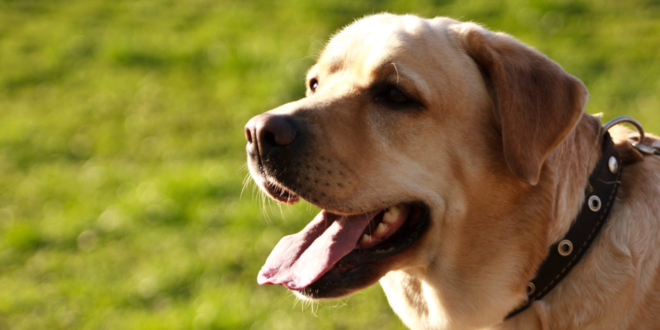Train Your Puppy Not to Bark – Are you having trouble with your furry friend constantly barking? It can be frustrating and stressful, especially if you live in a shared space or neighborhood. However, excessive barking is a common issue among puppies, and fortunately, it is a problem that can be fixed with proper training.
In this article, we will discuss effective methods and tips on how to train your puppy not to bark excessively. We will also provide you with a list of semantically relevant terms related to puppy training to help you better understand the topic and train your furry friend effectively.
Table of Contents
Understanding the Reasons Why Puppies Bark
Before we dive into the methods and tips for training your puppy not to bark, it is essential to understand the reasons behind their excessive barking. Some of the common reasons why puppies bark are:
- Fear or anxiety
- Excitement
- Boredom or loneliness
- Territorial or protective instincts
- Attention-seeking behavior
It is crucial to identify the root cause of your puppy’s barking before implementing any training methods. This will help you tailor the training approach to address the specific reason why your puppy barks excessively.
Positive Reinforcement Training
Positive reinforcement training is a widely used training method that focuses on rewarding good behavior rather than punishing bad behavior. This method is based on the principle that rewarding your puppy’s good behavior will encourage them to repeat it.
Teaching Your Puppy the “Quiet” Command
Teaching your puppy the “quiet” command is an effective way to train them not to bark excessively. Here’s how you can do it:
1. Wait for your puppy to bark.
2. Say “quiet” in a firm but calm voice.
3. Wait for your puppy to stop barking.
4. Reward your puppy with a treat and praise them for being quiet.
Repeat this process consistently every time your puppy barks until they learn to associate the “quiet” command with the cessation of barking.
Rewarding Your Puppy’s Good Behavior
In addition to teaching your puppy the “quiet” command, it is essential to reward their good behavior. When your puppy is quiet, reward them with treats, praise, or playtime. This will reinforce their good behavior and encourage them to continue it.
Consistency and Patience in Training
Consistency and patience are crucial when it comes to training your puppy not to bark excessively. You must be consistent in implementing the training methods and patient in waiting for the results.
It is important to note that training your puppy not to bark excessively may take some time, and you should not expect immediate results. Consistent and patient training will yield better and longer-lasting results.
Avoiding Negative Reinforcement Training
Negative reinforcement training involves punishing your puppy for bad behavior. This method is not recommended as it can cause fear, anxiety, and even aggression in your puppy. Additionally, negative reinforcement training can damage the trust and bond between you and your furry friend.
Environmental Enrichment and Exercise
Boredom and lack of exercise can cause excessive barking in puppies. Providing your furry friend with environmental enrichment and exercise can help reduce their barking.
You can provide environmental enrichment by giving your puppy toys, puzzles, and games that will keep them mentally stimulated. Exercise can also help reduce your puppy’s barking by expending their excess energy.
Seeking Professional Help
If your puppy’s excessive barking persists despite consistent training and environmental enrichment, seeking professional help may be necessary. A certified dog trainer or behaviorist can help identify the root cause of your puppy’s barking and provide customized training plans to address the issue.
Frequently Asked Questions (FAQs)
1. What age should I start training my puppy not to bark excessively?
It is best to start training your puppy as early as possible, ideally between 8-16 weeks of age.
2. How long does it take to train a puppy not to bark excessively?
Training time can vary depending on the puppy’s age, breed, temperament, and the consistency of training. It may take a few weeks to several months to see significant results.
3. Can shock collars be used to train puppies not to bark excessively?
No, shock collars should not be used to train puppies not to bark excessively. They can cause physical and emotional harm to puppies and damage the trust and bond between you and your furry friend.
4. Are some breeds more prone to excessive barking than others?
Yes, some breeds are more prone to excessive barking than others, such as Beagles, Chihuahuas, and Terriers.
5. Can giving my puppy treats for being quiet lead to overfeeding and weight gain?
It is important to provide your puppy with a balanced and appropriate diet and avoid overfeeding them with treats. Use small, healthy treats as rewards for good behavior and monitor your puppy’s weight regularly.
Conclusion Train Your Puppy Not to Bark
Excessive barking is a common issue among puppies, but with proper training and patience, it can be addressed effectively. Positive reinforcement training, consistency, and patience are key to training your puppy not to bark excessively. Environmental enrichment, exercise, and seeking professional help can also be useful in addressing the issue. Remember to avoid negative reinforcement training and always prioritize your puppy’s physical and emotional well-being.
By implementing the methods and tips provided in this article, you can train your puppy not to bark excessively and enjoy a peaceful and harmonious relationship with your furry friend.
 Treat For Dog – Brain Training for Dogs, Dog Training & Obedience Discover Treat For Dog and get your pup on the path to smarter, happier, and healthier living with brain training for dogs.
Treat For Dog – Brain Training for Dogs, Dog Training & Obedience Discover Treat For Dog and get your pup on the path to smarter, happier, and healthier living with brain training for dogs.




